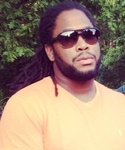The pleas surface soon after the killings.
On Facebook and fundraising websites, in obituaries and online memorials, families and friends ask for help burying the dead.
“We are raising money for a tombstone for Julien Jerome Printemps. …. Julien was a kind-hearted, generous, funny and loving person. He had a smile that could light up any room.”
“Now his family, particularly his mom, Della, need your financial help in celebrating his life, mourning his death, and putting the soul of this beautiful young man to rest. Andy’s short life life touched so many others in such a positive way. Please, if you can, give something back.”
“Right now our family is reaching out to you for your assistance to help us bury Perris. By this Thursday, July 25, 2013 we need to give Oak Lawn Cemetery $3,300.00.”
The value of life is incalculable, but the cost of death is easier to figure; part of the trauma that follows murder is the fee incurred by families who must lay the victims to rest.
Expenses stretch into the thousands of dollars, and the process moves quickly. In just days after a fatal crime, relatives must visit funeral homes, consult cemeteries and wade into the thicket of state bureaucracy in search of financial assistance.
Clementina Chery, the founder of a local peace institute, has seen the bills.
“I think sometimes it’s cheaper to live than to die,” she said.
*****
The median cost of an American funeral in 2012, according to the National Funeral Directors Association, was $7,045. That figure includes the cost of embalming, as well as material aspects of a service like a casket, a hearse and a facility fee. Add a vault — a cement chamber to hold the casket — and the median price estimate increases to $8,343.
“You should always have $7,000 to $8,000 ready to bury somebody,” said Todd Burne, manager of Oak Lawn Cemetery in Roslindale. But, he said, that may be an unrealistic expectation, especially for families of young homicide victims.
“Who’s going to think about how much money they need in case someone gets murdered?” he said.
That cost can be particularly burdensome considering a majority of Boston’s homicides occur in Roxbury, Dorchester and Mattapan, three neighborhoods where poverty rates are also high.
A 2011 report sponsored by The Boston Foundation — working with the city as a partner — found that, “households at or below poverty [level] … are concentrated in the Roxbury/Dorchester/Mattapan neighborhoods of Boston.” The study concluded that 42 percent of children in the area live below the federal poverty threshold, the highest concentration of any place in the state. At the time, the report said, the poverty threshold for a family of four was $22,050.
In 2013, of the 43 homicides or potential homicides in the city, at least 19 included a victim from one of the three neighborhoods, according to data collected by Homicide Watch. Thirty of the killings took place in Roxbury, Dorchester, or Mattapan. A Boston Globe report in 2012 found that in one section of Dorchester, Bowdoin-Geneva, the homicide rate per 10,000 people was approximately triple that of all Boston.
The primary assistance for the families of victims of homicide comes from the state attorney general’s office through the Massachusetts Victims of Violent Crime Compensation program. According to the attorney general’s website, victims of violent crime can apply to receive up to $25,000 from the state, including a maximum of $6,500 for funeral and burial reimbursement.
In a 2012 report filed with the federal Office for Victims of Crime, which distributes funds to state compensation offices according to the federal Victims of Crime Act, the Massachusetts program reported that it paid $1,036,978 total dollars for expenses related to homicide claims across the Commonwealth. According to the report, $852,336 went to funeral and burial costs statewide that year.
For some families, the $6,500 does not cover all costs, and burial expenses for cemeteries are generally distinct from funeral charges. The cost of buying a plot and opening a grave can exceed $3,000, sometimes upfront, according to industry experts.
This is where Chery and her Louis D. Brown Peace Institute come in. Chery has taken funeral and burial costs up as one of her leading causes since her 15-year-old son was murdered near Fields Corner in 1993.
She has created brochures listing victims’ rights and resources, as well as a lengthy workbook called the “Survivor’s Burial and Resource Guide,” which she hopes victim advocates will use to counsel relatives of the deceased.
*****
To make the most of the reimbursement program, Chery has worked with funeral homes in some of Boston’s most violent neighborhoods to develop burial packages that cost only as much as the state’s payment.
At J.B. Johnson Funeral Home in Roxbury, such a package includes a basic casket, all funeral home fees and a single grave at Oak Lawn Cemetery. Burne, the manager at Oak Lawn, said a grave there costs $2,800 — $950 for the plot of land, $400 for the concrete liner which holds the casket and another $1,450 for the fee to open the grave.
“What we do is we try to keep the cost within the range just because we know that this is an unexpected death for the family,” said Julia Arrington, a director at J.B. Johnson.
Arrington said families who choose this package will not have to pay anything out of pocket as long as their application for state reimbursement is approved and they do not seek specialty additions to the service.
“If they needed the limousine or things like that, it would be just a tad bit more,” she said.
Louis Antoine, director at the Riley-Antoine Funeral Home in Dorchester, said he offers a $4,600 package that covers directors’ and service fees, the cost of a hearse, embalming and dressing. Cemetery expenses and the charges for flowers, limousines, newspaper death notices — some of what Antoine calls “cash advances” — are not included.
All funeral directors said they encourage families of homicide victims to stay within their means when planning a service, but this can be a challenge in the emotional days after a sudden loss.
Relatives often want to customize services to give their loved ones an elegant send-off, but add-ons and specializations cost more money.
“I have to be careful to say, ‘Well you don’t have enough money here,’ and then the family is telling you, ‘Well, this is my little man,’” Antoine said.
For instance, he said, if a victim liked the color black, a family might want to purchase an onyx casket. But a custom product such as this would cost more.
“People want to outdo the funeral of the last person who got killed in the city,” said Barry Greene, a director at Davis Funeral Home in Roxbury. “You don’t want to get into that.”
Some stores such as Costco sell caskets for less than $1,000, and cremation is a cheaper alternative to traditional burial in a cemetery. A cremation with an embalming and a funeral service might cost between $4,200 and $4,500, Greene said.
Chery said she also advises families to work within a budget. “You don’t need five limousines, you don’t need a horse-driven carriage, you don’t need a glass casket,” she said.
*****
Each funeral director said they work with people using state reimbursements to pay for funerals, but the process sometimes takes weeks to complete.
Most families of homicide victims do seek assistance from the state and for the most part, the directors said, their claims are approved, unless the victim was also a perpetrator in the crime in which he or she was killed.
Funeral directors may host services without actually receiving payment until months later when the application for state compensation is approved.
“Usually it takes about a year, maybe a year-and-a-half to get paid,” Arrington said.
In its 2012 report to the federal office, the Massachusetts victims compensation program said claims on average took 11.5 weeks to process. During this period, the office vets and investigates claims, and the state treasurer issues checks, according to the report. The claims are not just homicide-related, however, and those seeking assistance also include victims of domestic violence, sexual assault, and other violent crimes.
Antoine said that as of late March he had about 10 outstanding contracts with families planning to use state funds for funeral costs. Of those, he said, four claims were more than a year old.
In years past, Antoine said, he would sometimes front burial costs for families and wait for the victims assistance program to reimburse both his fees and the additional expenses he covered.
“I used to put all of that on my bill and send all of that to victims assistance,” he said. “I stopped because the turnaround gets slower and slower every year.”
Antoine said he still allows families to cover all funeral expenses with victims assistance, but it is hard to have payment outstanding for months.
*****
The Peace Institute’s latest project seeks to reduce the challenge of upfront costs through a private burial fund to support families in paying for cemetery plots and grave openings.
Chery is working with Boston’s clergy to create the fund, which she hopes to have set up by the end of 2014. She expects some people will contend that to create such a program is to bow to homicide and accept murder as inevitable. But she believes local residents must be practical and proactive.
“For the past 20 years, it’s the same spot and the victims are younger and the perpetrators are younger, so we might as well equip and prepare or get up and leave,” Chery said.
Her goal is to eventually have the city pay for all homicide victims’ burial costs, so that private funds like the one she is setting up are unnecessary.
“The state gives you just enough for the service, and then the city needs to cover the burial,” she said.
Three cemeteries in Boston are operated by the city: Mount Hope, Evergreen and Fairview. According to the 2013 schedule of fees published by the local Cemetery Division, a single grave costs $525 for the plot and $838 to be opened on a weekday or $1,019 to be opened on a Saturday. A burial permit costs $31, according to the Boston Public Health Commission.
Chery said many victims of homicide in Boston had at some point been through the political system in their lives — as former criminals, at-risk teens, or members of in inner-city youth programs. The city, she said, supports these people in life, and it should do the same for their families in death.
“We’re getting a lot of money for the ongoing violence, yet when these young men are murdered, it’s the families that must take on the costs,” she said.
*****
Through the red tape, expensive bills and anguish, those involved with burying the city’s homicide victims continue their work based on a shared belief that every person, no matter his or her background, deserves an honorable end.
“Death creates a gap in every family,” Antoine said. “Our code of ethics and conduct is to make ourselves available to that family no matter what. A dead person to us is innocent. It doesn’t matter how you died.”
Murder will not go away, Arrington said. She has buried homicide victims for more than a decade and said little has changed in that time. Killing will continue, and in the fracture left behind by death, communities will unite in their financial and emotional support for the grieving families.
“It’s still the same, and it’ll probably be the same 20 years from now,” Arrington said.
The costs, Chery said, may rise, but her hope is that people experiencing the trauma of homicide will eventually feel less of this burden.
“Our goal,” she said, “is to make sure that the family buries their loved one with dignity and respect.”








